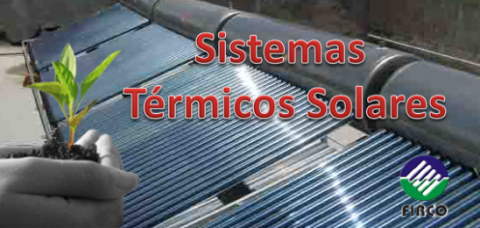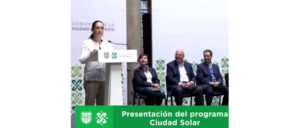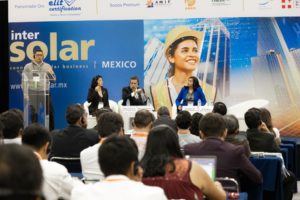Mexico: Training and On-Site Inspection for Agricultural Solar Systems
July 26, 2012
 Mexico’s Shared Risk Trust Fund, FIRCO, has already financed more than 100 solar water heater systems in the country’s agricultural sector. “Between 2004 and 2010, we provided technical assistance to 114 small agricultural producers by installing solar water heater systems on their land. Nowadays, demand for these systems is growing very fast and the FIRCO programme has become stronger than ever in installing these renewable energy technologies,” Octavio Montúfar, Head of the FIRCO renewable energy programme, explains. Currently, more than 60 people, such as local technical advisors, work in the Trust Fund’s programme, which has been equipped with a USD 200 million budget since 2006. Additionally, FIRCO is assisted by the German International Cooperation (GIZ) in setting up and implementing a quality control scheme for solar water heaters.
Mexico’s Shared Risk Trust Fund, FIRCO, has already financed more than 100 solar water heater systems in the country’s agricultural sector. “Between 2004 and 2010, we provided technical assistance to 114 small agricultural producers by installing solar water heater systems on their land. Nowadays, demand for these systems is growing very fast and the FIRCO programme has become stronger than ever in installing these renewable energy technologies,” Octavio Montúfar, Head of the FIRCO renewable energy programme, explains. Currently, more than 60 people, such as local technical advisors, work in the Trust Fund’s programme, which has been equipped with a USD 200 million budget since 2006. Additionally, FIRCO is assisted by the German International Cooperation (GIZ) in setting up and implementing a quality control scheme for solar water heaters.
Figure: http://www.firco.gob.mx
30% of the fund’s budget comes from World Bank credit loans, another 40% from the Mexican government. The remaining 30% are derived from participations of small farmers under joint shared-risk investment schemes within FIRCO. Besides solar thermal systems, the fund also supports several other renewable technologies, such as PV systems for water pumping and biogas recovery on pig farms and cattle ranches.
The Mexican Ministry of Agriculture, SAGARPA, started the renewable energy programme in order to reduce energy costs in the agricultural sector and make the small agri-businesses more competitive. In addition to offering loans to agricultural business, so that they can finance their solar water heating (SWH) systems, FIRCO also supports vendors of these solar thermal systems and provides technical assistance to end users by offering training courses during the system’s installation. “Today, we organise 3-4 day training courses for installers and the technical staff at FIRCO agri-businesses,” explains Montúfar when asked about FIRCO’s work in the field. “We also check all offers which solar thermal system vendors present to their clients and we inspect the systems on-site once they have been set up completely.”
According to FIRCO, most of the solar thermal system suppliers use vacuum-tube technology with heat pipes because of their lower price and the higher temperatures these systems can reach. Typical applications are slaughterhouses, shrimp farms and food processing facilities. For example, a slaughterhouse needs around 300 litres of hot water at 65 °C per animal and day. “The payback period varies between 4 and 6 years if the backup energy source is Liquid Propane Gas (LPG),” explains Montúfar. Using the expensive diesel makes the payback period even shorter: in this case, it ranges between 3 and 4 years.
More information:
http://www.firco.gob.mx
http://proyectodeenergiarenovable.com/


